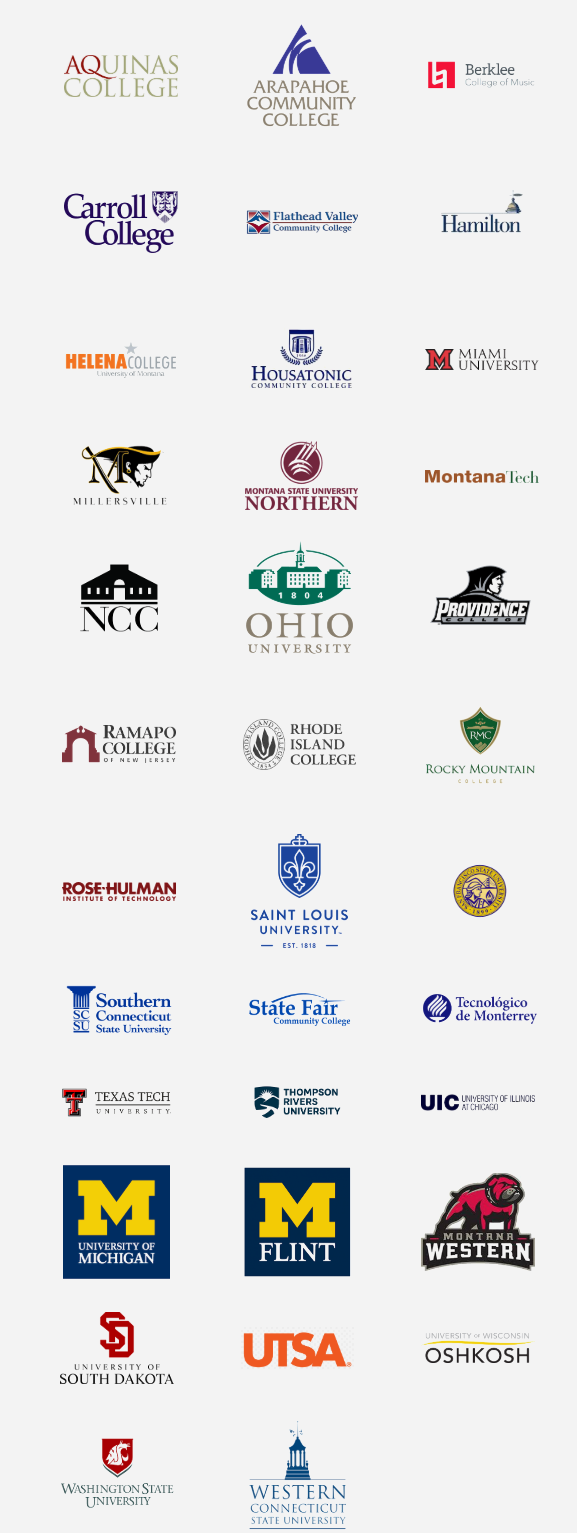We are delighted to announce the participating institutions in Cohort 3 of the Culture of Respect Collective, an ambitious two-year program that brings together institutions of higher education dedicated to ending campus sexual violence and guides them through a rigorous process of self-assessment and targeted organizational change. This third cohort of 36 diverse institutions from across North America will build on what’s working, embrace what’s new, and navigate the changing tides of what’s next as they apply our system-based approach to ending campus sexual violence.
What’s working?
- Cohort 3 will rely on Culture of Respect’s signature tools – the CORE Blueprint and the CORE Evaluation self-assessment survey – as a framework, to inventory their efforts to prevent and respond to sexual violence, and to guide the creation of unique institutional plans for systemic change that go above and beyond standard compliance.
- Their work will be led by multidisciplinary groups of campus stakeholders, because Culture of Respect believes we all have a role to play in ending sexual violence at institutions of higher education. When asked what they were most proud of in their Collective work, an institution who recently completed their participation in Cohort 1 cited the “creative ideas [that came] forward from the cross campus collaborative nature of our team.”
- The participants will build their knowledge and skills through monthly professional development and networking opportunities, as well in-person networking at NASPA conferences.
What’s new?
Our most diverse cohort to date
- Read more in our infographic or check out the full list of participating institutions (below)
- Cohort 3 includes our first international participants: Thompson Rivers University in Canada and two campuses from Tecnologico de Monterrey in Mexico
- We are pleased to welcome several constellations of institutions who received state support to join the Collective (Connecticut, Michigan, Montana, and Rhode Island) and look forward to replicating this model in future cohorts.
Updated self-assessment instrument: Cohort 3 will administer the soon-to-be-released 4th edition of the CORE Evaluation self-assessment survey. This updated edition includes new questions regarding:
- Supports and services for employees who experience sexual violence;
- Efforts to ensure all parties have access to a fair, prompt, and equitable adjudication processes;
- Strategies for engaging alumni and parents and families; and
- Many more.
New programmatic benefits. The third cohort will benefit from expanded access to NASPA’s robust professional development opportunities:
- Institutional access to the forthcoming Foundations online course, which prepares student affairs professionals with the tools they need to be influential allies in campus sexual violence prevention and response
- Networking with Collective peers at NASPA’s 2020 Strategies Conferences
- A site visit tailored to the institution’s unique experience in the Collective.
Applying what we’ve learned. With Cohort 1 having recently concluded their participation, we have data that confirms when institutions adhere to the program model, they can make significant changes across the six pillars of the CORE Blueprint and better align their institutional policies and practices with federal laws and evidence-based and expert-recommended practices. We look forward to publishing a report on the Cohort 1 data and applying the lessons learned to our current cohorts.
What’s next?
In recent years the landscape around campus sexual violence has been rapidly shifting, and as we await the final Title IX rule from the Department of Education, we know more changes are yet to come. Regardless of what lies ahead for Title IX, we applaud the Cohort 3 institutions for committing to this rigorous process of strengthening sexual violence prevention and response at their institutions, and to the health and well-being of their students. At a time when federal government pressure to address this issue may feel as though it has been relaxed, we commend these institutions for committing their precious time, resources, and person-power to the undeniable need to address the sexual violence and harassment that is endemic to our society, including our institutions of higher education.
Even at this early stage in the Collective program, we have been moved by the dedication and enthusiasm Cohort 3 participants have shown towards this process. We look forward to seeing the impact their work will have at their institutions, and to our larger societal efforts to end sexual violence as their students go on to be citizens of the world.
Welcome, Cohort 3

